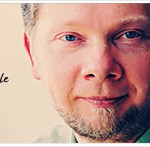Spiritual Enlightenment, Spiritual Teachers, Jesus Christ, Profiteering and Capitalism
Why is it a conflict of interest when someone among us, a religious leader or self-proclaimed “spiritual teacher”, becomes “enlightened” and then charges exorbitant sums of money for their services, often at the expense of the very people they seek to help? What is the conflict between spirituality and capitalism?
If we are rewarded through service, then why do we pay more to the surgeon who lifts our breasts or tucks our tummy than to the janitor or house-cleaner that scrubs our toilet or mops our floors? Why do we compensate lawyers or politicians more than the police officers or firemen who risk their lives to keep us safe? Since when is the value of service equal to the compensation received?

Adam Smith Ode Magazine
Ode Magazine came out with an article last year about the gospel according to adam smith and it talks about the spiritual father of spiritual capitalism not being Mahatma Gandhi or the Dalai Lama, but Adam Smith.
“Is doing good compatible with making money?”
Where is it said that by following our path and being of service that we aren’t allowed to be rewarded financially? As part of this physical existence, isn’t money the reward we generally receive for the quality of service rendered? Clearly fulfillment is the greatest gift we can receive through serving others, but where is the limit to financial remuneration? Where it the cut-off between being handsomely rewarded for valued service, and allowing our ego and greed to take advantage of others?
Now don’t get me wrong, there are some incredible spiritual leaders in this world, but aren’t the most enlightened the ones who relinquish their capitalistic tendencies for a life of service, and surrender their creature comforts of this physical existence for the spiritual ones they reconnected with along the way? This is not to say that these leaders don’t have a right to charge for their services, but should the value of their service ever exceed the amount of money paid?

Eckhart Tolle
Shawn Nevins runs the website spiritualteachers.org, and he gave a relatively scathing review of Eckhart Tolle as a result of his “profiteering,” with respect to the cost for the products and services, and the actual products and services themselves. To be the devil’s advocate if you will for a moment; what right do we have to ridicule Eckhart Tolle for his desire to be rewarded for his services? In addition, in a society where economics and capitalism are as essential to the ebb and flow of our society as supply and demand is to the price for goods and services, how can we attack our religious and spiritual leaders who choose to be rewarded for their services? Technically Mr. Nevins’ complaint is not with the spiritual teachers and religious leaders themselves…his beef is with capitalism. The fact that capitalism runs our world, not to mention our livelihood including health care, the media, war and the judicial system is not the fault of these spiritual leaders, it is simply the world in which we live.
Now I have never met Mr. Nevin, but in reading his reviews of self-proclaimed spiritual teachers, he is clearly well read and well versed in the topics of spirituality and truth, and has a keen understanding of those who choose to teach and guide. He puts forth his guidelines for analyzing or judging these teachers, but the very first guideline appears to be the with respect to money and material wealth:
“Preoccupation with money and material. This is a controversial point. The argument goes that a spiritual teacher provides a service, like a plumber, so deserves to be compensated. Also, if the disciples pay the teacher, then the teacher can spend more time helping them. My retort: if a person has had a complete realization, the idea of asking someone to pay to speak with you is ludicrous. It is reasonable to ask people to help pay to rent a room, or help with travel expenses, or buy a book. We do not have to expect our teacher to live as a monk, yet a preoccupation with “big cigars and motor cars” is cause for concern. We know all too well of the stories of fancy cars, wild parties, country estates, and big bank accounts. Seen with your own eyes, such behavior is inexcusable. Why? Because a spiritual realization doesn’t plunge you further into this dream world.”

Self-Proclaimed Jesus Christ Man
Bill Maher’s movie Religulous also chides many, but one person in particular is Jose Luis de Jesus Miranda, a former heroin addict and self-proclaimed Jesus Christ reincarnate. Of course there have been many who “claimed” to be Jesus Christ, but Bill Maher’s issue (aside from the most obvious atheistic one) appears to be Mr. Miranda’s indulgence in all things luxurious as his attire was more reflective of greed than self-sacrifice, especially when Jesus Christ himself was rumored to be one who chose voluntary poverty and selfless service. The issue appears to be a conflict with respect to these self-proclaimed spiritual teachers or religious leaders for their obsession with all things monetary.
Many religious leaders of all faiths and religions have become corrupt as they have discovered the ease at which people will give their money for even the smallest chance of salvation (see karma clearing). One website in particular lists the top six American dream pastors who have multi-million dollar lifestyles specifically as a result of the donations received by their constituents.
“American rich pastors have become the stars of the body of Christ. Instead of spending money on reaching the unsaved, the sick, the poor, orphans, elderly, prisoners, and a world going to hell, it is going to mega building complexes and the luxurious lifestyles of pastors and their families.”
Clearly this is not an issue of religion per se, but it is a question of morals with respect to those who claim to have the “ear” of God if you will, as if one human being could actually be the designated gatekeeper of wisdom. We each have the ability to see and hear the truth, not as a result of our financial well being, but as a result of the choices we make and our ability to listen.

Spirituality, Money and Greed
Aside from whether you agree or disagree with who these religious leaders or spiritual people are or whether or not you believe what they preach…who are we to judge the lifestyle or life choices of another, regardless of whether they choose to be of selfless in service or not? Again it goes back to the value of the service provided, in addition to the evolution and enlightenment we hold within ourselves. We cannot expect or demand that even our greatest leaders and teachers embody a type of voluntary poverty unless they choose to do so as part of their own choice and path in life. Even more, simply because we have not achieved the fame, notoriety and success that they have in their particular avocation, does not mean that we have any right to criticize theirs, especially when their success is a result of helping others, contributing in ways perhaps beyond compensation to make this world a better place for all of us – that is if we choose to see it this way.
Who among us is worthy of the riches of the universe? Are some among us more worthy than others? Not really…we all are worthy of riches, but not more than our worth to achieve true happiness and fulfillment, as money and happiness are not directly correlated to one another.We can only make choices with respect to our own lives, and to those teachers we choose to follow.
We choose our doctors by the quality of their medical ability, and we choose our lawyers by their ability to succeed in the judicial system. If we want a financial consultant than we should choose someone who has proven their ability to reap the wealth of the universe. However, if we seek a spiritual teacher, then we must select the teacher that embodies the principles and morals that we believe are necessary from someone who self-proclaims enlightenment.
We have the power to choose, but our discretion is essential as we must follow in the footsteps of those we admire, respect and trust…those who teach us to discover ourself and to follow our own truth.
3 Website Comments
Leave a Website Comment












So, what is the salary of the Pope?
Very interesting question. Not being an expert on this myself…i consulted a few websites – WikiAnswers (http://wiki.answers.com/Q/How_much_money_does_the_pope_have) answers it this way: The pope is quite possibly the richest man on earth. The catholic church is the biggest corporation on the planet, having 1.1 Billion due paying members, bigger than ANY wireless corporation or oil company. It has an annex in every neighborhood across the United States, and pays little or no salaries to its priests. The Boston diocese alone is worth over half a billion dollars. The pope, being the leader of this multi billion dollar “company”, walks around in robes MADE OF GOLD. It’s true. The popes robes are made of gold spun into thread. 24 Karat gold. No kidding. The pope is the richest man alive.
Another interesting overview of the Pope here: http://www.chick.com/reading/books/153/153_10.asp, where they state “”The Catholic church is the biggest financial power, wealth accumulator and property owner in existence. She is a greater possessor of material riches than any other single institution, corporation, bank, giant trust, government or state of the whole globe. The pope, as the visible ruler of this immense amassment of wealth, is consequently the richest individual of the twentieth century. No one can realistically assess how much he is worth in terms of billions of dollars.”
My spiritual teacher is the same man who first set Shawn Nevins on the path. His name is Augie Turak, and he has spent a lifetime focused on spiritual learning and teaching. And, he is the wisest man I have ever met. And, he is a businessman, salesman, and capitalist. He doesn’t see any contradiction there.
Augie always insists that the characteristics you need to succeed in business are the same as the characteristics you need to succeed in the spiritual quest. You need to be willing to take risks, think outside the box, and see the world from someone else’s perspective. You need to defer gratification. You need to follow an ethical code. You need to be willing to deliberately put yourself in high-pressure situations. Most important of all, you need to be willing to persist, day after day, failure after failure, when most people would give up.
When you make your living in sales or business, you put yourself in a position where those skills are essential to your day-to-day survival. This “crucible” forces you to develop those skills, and those are the exact skills you need to tackle the biggest, hardest, most abstract, most important questions of all.